Netflix series The Night Agent has a rickety plot, flat dialog, a low-charisma (though handsome) male lead, and B-level production values.
I watched all ten episodes in two days of binging.
I’m trying to understand why.
The first episode of The Night Agent introduces us to our heroes, Rose and Peter. Peter is an FBI agent who at the opening we see thwarting the worst effects of a subway bombing attack through quick thinking and fast action, almost, but not quite catching the bomber in the process. Unfortunately, in the aftermath, Peter becomes the focus of internet conspiracy theories that he was somehow involved in the bombing, which has left him exiled to a post in the White House manning a phone in a windowless room through the night hours.
Rose is a once high-flying tech start-up executive who has lost control of her internet security firm after a major client was hit with a ransomware attack. Rose has decamped to her aunt and uncle’s somewhat remote house to nurse her wounds. In the middle of the night, Rose is awakened by a ruckus downstairs and finds her aunt and uncle armed and talking weirdly calmly and elaborately about what appears to be an imminent attack on the home by some trained assassins. They give Rose a phone number and a series of code words and tell her to skedaddle to the empty neighbor’s house where she can find a phone.
Up to that point, Rose thinks her aunt and uncle are some kind of consultants who love adventurous travel, but she seems to quickly grasp that they are, in reality, highly trained government operatives and just runs with it because why not? This is the first of dozens of times that an internal WTF went off in my head while watching the series, but before you can think too much about it, there’s Rose’s sweet old aunt putting up a hell of a fight against one of the assassins, surviving just long enough to let Rose escape before being shot or stabbed or strangled with a wire.
(All of these things and more happen in the show, and I can’t recall the specifics of some of the killings.)
I also can’t remember the exact contrivance that makes their cell phones inoperable, but pretty quickly you get used to things happening for the convenience of staging a bit of tense on-screen action, and as you see Rose break into the empty neighbor’s house (which is signaled by all the furniture being shrouded in sheets) and grabbing the cordless landline and calling the number, you know at some point, she will be hiding in a closet, trying to keep from being discovered by the assassins.
And yep, that’s where she is, having called that number and finding Peter in his windowless room on the other line, helping her keep calm while the authorities come, arriving just in time to save Rose, but not quickly enough to catch the assassins.
What unfolds over the next 9 1/2 episodes defies any summary of plot or story. A bunch of stuff happens in sequence, only some of which makes sense. There’s a conspiracy around the bombing Peter partially thwarted which reaches to the highest levels of government, roping in the Vice President, the President’s chief of staff, the daughter of the Vice President, some Secret Service agents, and other random people who show up to either further the plot or get themselves killed helping out Rose and Peter, but even after watching the whole series, I’m unclear on what motivated the original acts, and honestly, it doesn’t matter because I don’t think it holds together anyway.
The Night Agent does have some well-filmed person-to-person combat sequences, and the character of Rose (played by Luciane Buchanan) is elevated above the standard damsel-in-distress narrative - when she is told to stay in the car, you know for sure that she is not going to stay in the car - but it is also relentlessly cheesy.
It’s fueled by a predictable unpredictability. Where when one character says to another, “I’m the only person you can trust,” you know the betrayal is no more than ten minutes away, but you also experience a rising anticipation waiting for the act to happen. More than once Rose and Peter decide that it’s better if they split up and meet again later, which is a virtual guarantee one or both are about to meet a mortal threat.
There is limited attention to detail or story integrity, and there’s some scenes where it seems like the first words after “cut” must’ve been, “not great, but good enough.” At one point, a character who has been shot in the leg needs to limp, but they also must escape an impending explosion, resulting in the least convincing limp in the history of television.
Even as the body count mounts, there is zero chance that either Rose or Peter are going to be killed, and you know at some point, the two very attractive people who have been on the run from multiple forces that want to capture or kill them will find themselves a brief moment of respite where their clothes will come off and they can dream of a future of peace where the clothes can come off and not be worried about an assassin bursting through the window.
The other recent show The Night Agent most resembles is the Jack Ryan series on Amazon starring muscular Jim Halpert, I mean John Krasinsky. Both are action suspense stories focused on a white knight hero driven by an inherent sense of duty. The individual elements of Jack Ryan are objectively superior in every way to The Night Agent. Better actors, more coherent story, and a production budget that must be easily 10 to 20 times larger.
The Night Agent is, in my view, far more enjoyable than Jack Ryan.
The Night Agent and Jack Ryan have similar action/suspense novel source material. I haven’t read The Night Agent novel by Matthew Quirk, but I’ve read a handful of the Jack Ryan Tom Clancy novels (The Hunt for the Red October), and every so often still enjoy a good dive into a tale of international intrigue and ass-kicking.
One of the pleasures of this genre is they make geopolitical complexity simple, boiling things down to a fight between the good guys and the bad guys. I have no illusions that these novels are at all real, or accurate reflections of what happens in the world of spies, but it’s more than okay to shut off some portion of your brain to allow another portion of your brain the chance to settle in and enjoy a page turner.
In a previous newsletter, I explored the commercial/upmarket/literary fiction continuum and how, for me, upmarket books often fall into an uncanny valley that keeps me from enjoying either their commercial or their literary qualities. My theory of The Night Agent vs. Jack Ryan is that Jack Ryan is attempting to convert genre material into prestige television. The season and a half of Jack Ryan I’ve watched in fits and starts over the last six months seems to be trying to couch profound truths about the world in muscular Jim Halpert’s adventures, but honestly who cares about that stuff? You just want to see how the good guys are going to get out of their next scrape. If you look at the individual parts of Jack Ryan, it seems to be a package of considerably higher quality, but it is, IMO, a much less satisfying viewing experience.
How can “better” be worse?
A recent episode of The Pop Culture Happy Hour podcast with Linda Holmes and Aisha Harris helped me better understand my own reaction. Holmes likens the show to what she calls “90s trench coat thrillers” like The Pelican Brief, which are predicated on some measure of intrigue, but the intrigue itself is immaterial to the fact that we’re watching an extended chase.
Holmes also notes that the series creator, Shawn Ryan (The Shield, Lie to Me), is a believer in the good, old-fashioned television episode, rather than the “ten-hour movie.” There is something about the pace at which The Night Agent moves that felt familiar and comforting. There’s quite a few slack moments in the story, but by the end of an episode we’ve experienced both one door closing and another opening and by gum thanks to the streaming interface, that next episode is already playing.
In some ways, The Night Agent to Jack Ryan feels like a Hallmark Channel movie to a Hollywood romantic film. I am not ashamed to admit the number of times I have managed to be sucked into the story of a high powered female attorney engaged to a financier who returns to her picturesque small town for the holidays and realizes she’d be much happier married to the local animal rescue guy, falling in love over the hand feeding of a raccoon or something.
Okay, maybe I’m a little ashamed to admit it, but that stuff works.
Those movies will not reach greatness - I am not going to experience the next When Harry Met Sally - but there is significant virtue in creating something so consistent to itself.
In other words, The Night Agent is exactly what it’s supposed to be.
I see this as the power of genre. There’s a reason why Law & Order will be on our televisions in some form until the Sun swallows the Earth, while Succession is going to be a spent force after 40 episodes. Originality and art are awesome, but familiarity and comfort are satisfying as well. When I go to a restaurant that’s promising me an “elevated” mac and cheese experience featuring four different varieties of cheese blended in a fine béchamel, there’s no guarantee that it will be superior to the Kraft dinner where the cheese comes in powder form.
This is obviously a dynamic at work in books as well. There’s a reason why Louise Penny, and Alexander McCall Smith will have eager audiences for their Chief Inspector Gamache and Ladies Detective Agency Books for as long as they wish to write them.
It’s why Jason Bourne novels of Robert Ludlum have become “Robert Ludlum’s Jason Bourne” novels, continuing to be cranked out well after this death.
I think just about all of Kate Atkinson’s novels are somewhere between good and terrific, but when I hear she has another Jackson Brodie book coming, my excitement level ticks up a couple of notches.
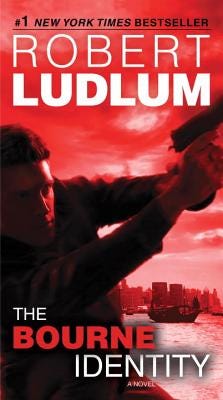
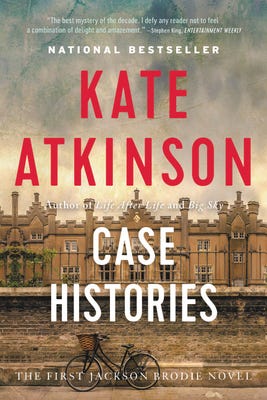


Yes, these are good characters and well-written stories, but the familiarity of genre that these characters and stories operate within is a significant part of the appeal. In reviews, you will sometimes see a phrase like “transcends the genre” as though this is an obvious virtue, but my experience with The Night Agent reminds me that this is not necessarily the case.
And when something makes an attempt at transcending the genre, but forgets some essential element of the original, you can have something entirely unsatisfactory on your hands.
Being exactly what an audience wants by following a formula is not necessarily a lesser achievement than something that exists outside of genre or that “transcends” its genre. It is an accomplishment worthy of its own consideration in the context of what it’s attempting to do.
Under that criteria, The Night Agent might just be a perfect television show.
Links
My Chicago Tribune column this week is about Illinois Libraries Present, a collective enterprise that allows libraries across the state to offer free virtual programming with well-known authors to patrons. Next up is Will Shortz!
Every ten years dating from 1983, Granta has published a list of the Best British Novelists, predicting the future superstars of literature, and this year’s list has just been released.
At Esquire, Sophie Vershbow went behind the scenes of Barack Obama’s reading list and it seems like it’s actually Barack Obama’s reading list.
There’s been a recent trend of authors posting pictures of their unattended events on social media. LitHub asks some experts about what happens when you have a book event and no one shows up. I got a story or two myself on this front. Maybe I’ll share them sometime.
If you’ve thought you should read some Gabriel Garcia Marquez at some point, but don’t know where to start, perhaps consider this “essential guide.”
And finally a bit of thematic humor from my old friends at McSweeney’s: “At My Age, My Dad Was Almost Done with that Tom Clancy Novel.”
Recommendations
All books linked here are part of The Biblioracle Recommends bookshop at Bookshop.org. Affiliate income for purchases through the bookshop goes to Open Books in Chicago and another book-related charity still to be named.
Affiliate income is $91.20 for the year.
1. The Candy House by Jennifer Egan
2. Project Hail Mary by Andy Weir
3. The Trees by Percival Everett
4. To Paradise by Hanya Yanagihara
5. Our Country Friends by Gary Shteyngart
Pat M. - Downers Grove, IL
This is a book I recommend often because it’s a great example of a mix of unusual characters, good comedy, and genuine pathos. They made an unfortunately bad movie out of it a couple years ago, which shows how tough it can be to translate all of these elements into a different medium, but the book remains a favorite: Where’d You Go Bernadette by Maria Semple.
I’m not a fan of labeling the enjoyment of shows like The Night Agent a “guilty pleasure” because there’s nothing to feel guilty about, so instead, I’m going to ask, what are your comfort books/shows/movies that make genre work to its highest potential?
See you next week,
JW
The Biblioracle




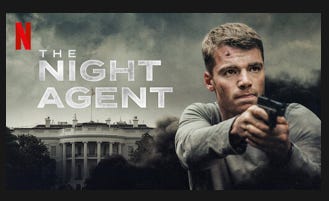
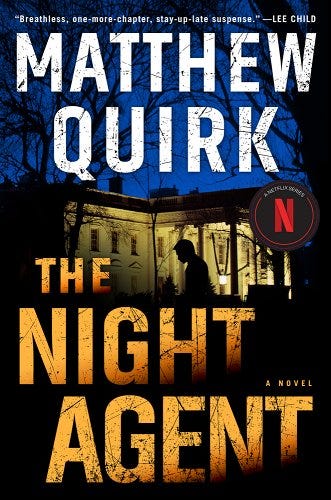
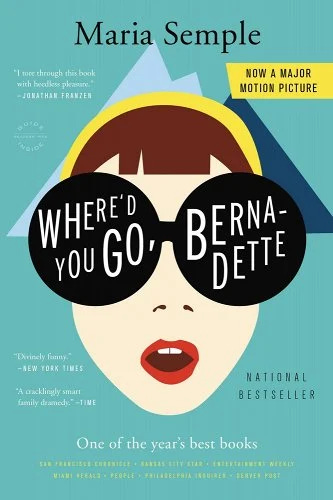
" it seems like it’s actually Barack Obama’s reading list."
Well, of course it is! Barack's been a member of Seminary Co-op for donkey's years. Did his first book signing (for "Dreams for my Father") at their general interest bookstore, 57th Street Books, back when no one except Hyde Parkers knew who he was.
RE: genre fiction - Dorothy L. Sayers' "Gaudy Night" is the best mystery/detective novel ever. I re-read it so often that I've had to replace my copy more than once (okay, that's in part because paperbacks are not well-made, but that's a rant for another day).
Just finished The Night Agent last night and was totally satisfied by it, whereas I started Jack Ryan and somehow wandered off and never finished it, so I can totally relate to your experience.
My comfort books are the sort of fantasy books that get tagged with the label "extruded fantasy product." I mean, sometimes you want a thoughtful fantasy that explores all the ramifications of a carefully constructed and original fantasy world, but sometimes you just want to read about a party of brave adventurers of various sorts journeying across the landscape to either find or destroy the McGuffin and thereby save the world, or at least the kingdom (at least for now - somehow it always seems to need saving again).